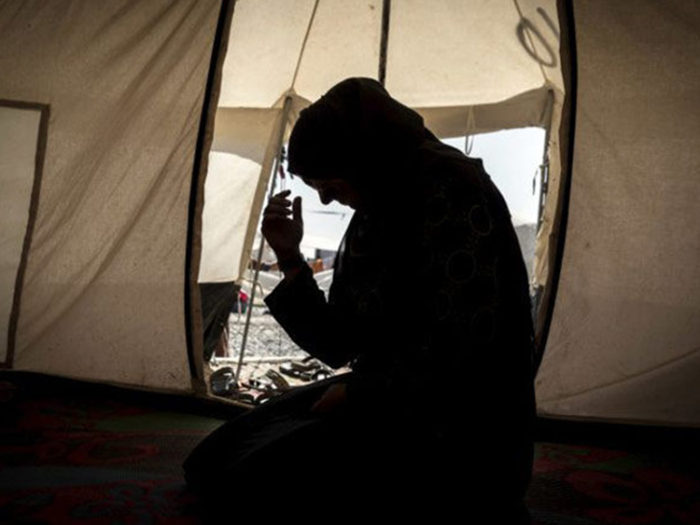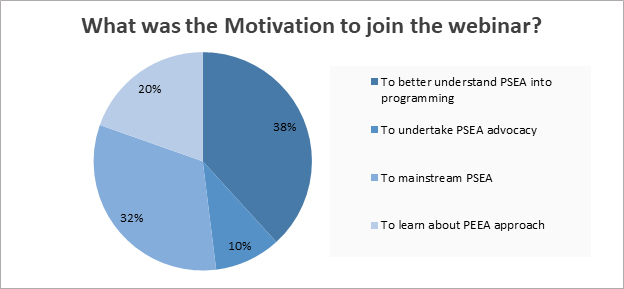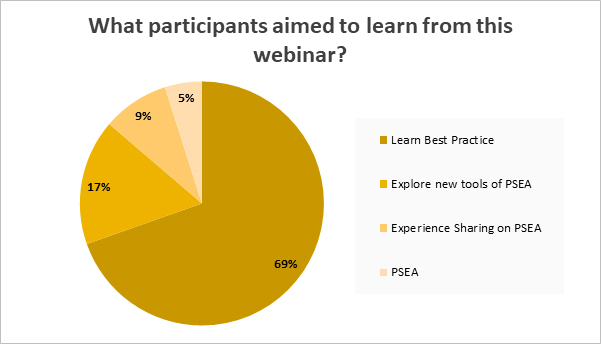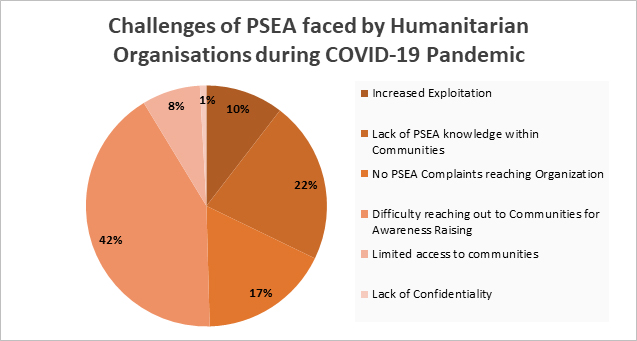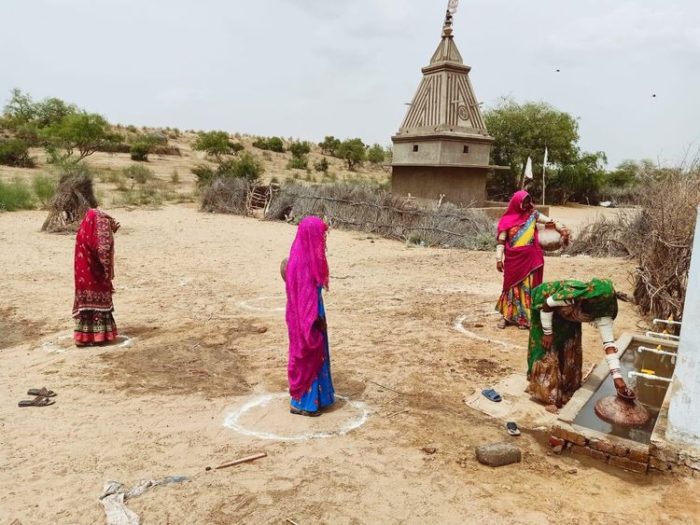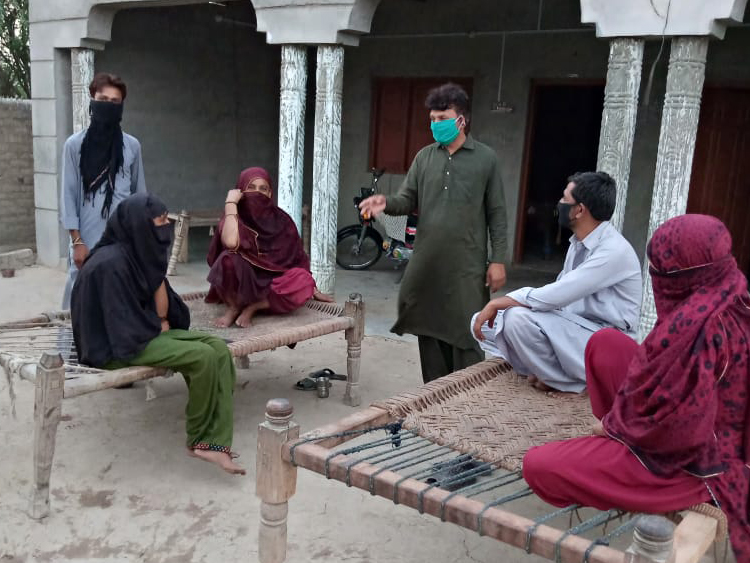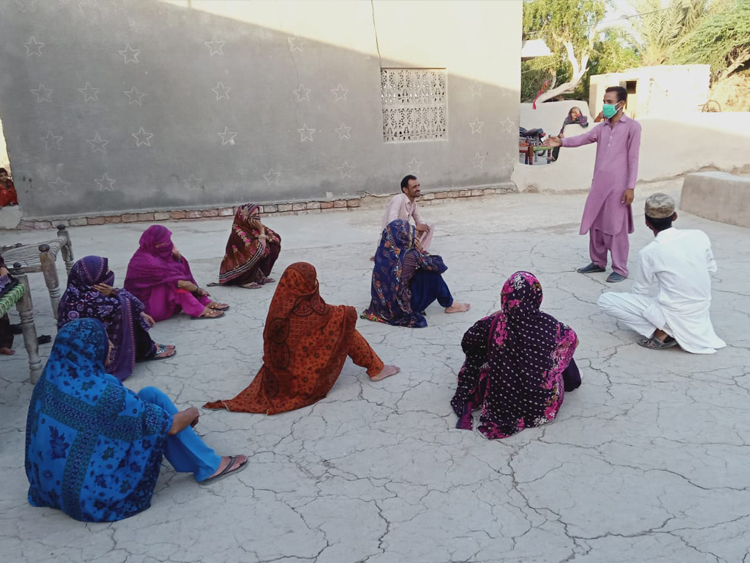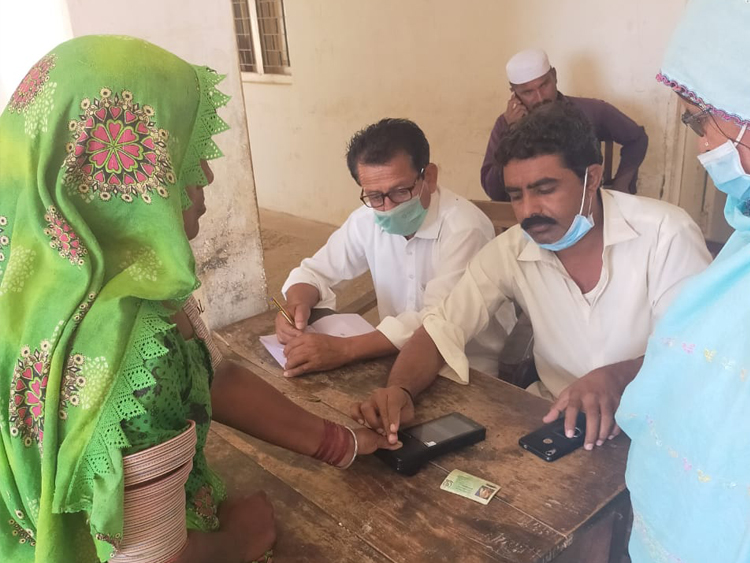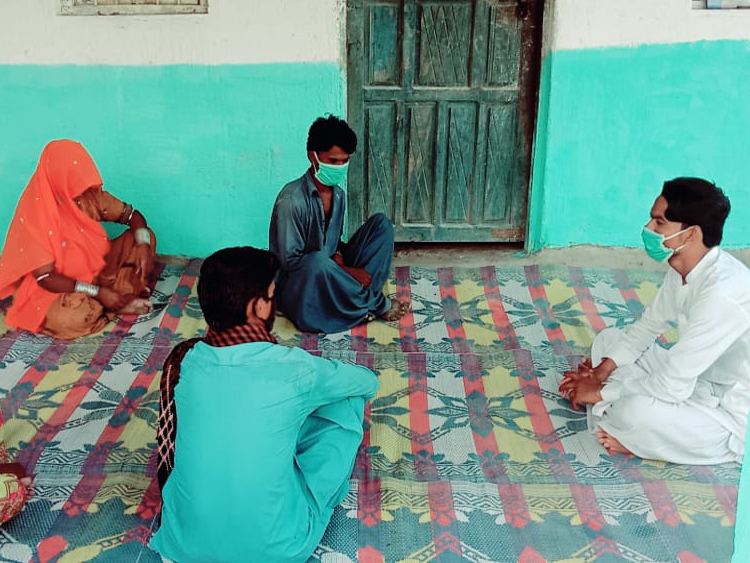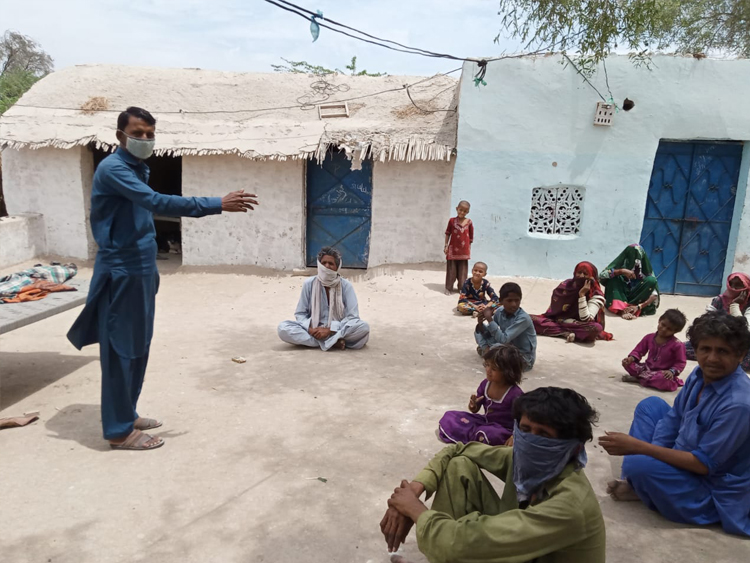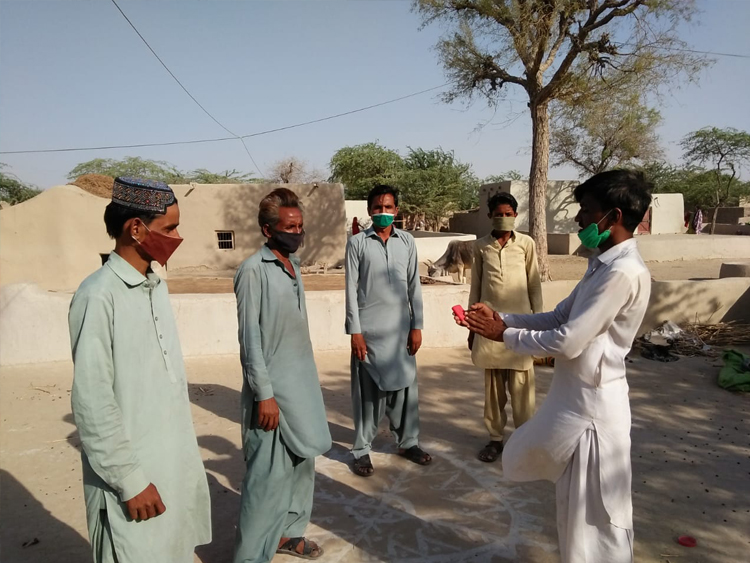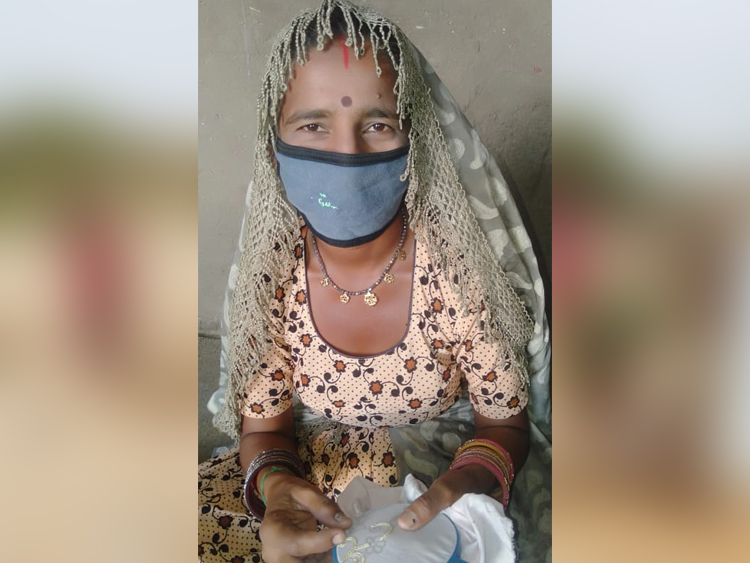Siddique suffers a financial blow
It was agonizing for William Siddique to borrow money from someone to keep his little grocery shop operational and restocked. He had never felt the need to do that before since his shop had always been running successfully, providing him a comfortable income. That is of course, before the coronavirus outbreak hit Pakistan.
Thirty-four years old Siddique lives in Latifabad, which is a housing community that mostly homes the religious minority communities in Hyderabad city of Sindh province. Siddique’s lower limbs were afflicted with polio just months after his birth.
“From a very young age I have lived a difficult life as I felt worthless due to my physically disorder. However, things changed when I started running my own shop in 2012. I was earning a good living for myself. This independency restored my sense of being,” said Siddique.
Ever since the COVID-19 spread rapidly in the country and a lockdown was imposed, the shop has been running low on supplies and Siddique has had insufficient resources to restock the shop.
“The government has eased the lockdown now and shops have started to re-open, following protective protocols. I had to borrow PKR 40,000 (Approx. USD 249) to purchase the most popularly bought products to restock in my shop. I now have to worry about repaying this debt.”
Siddique walks on his hands due to his disability and rarely uses a wheelchair when going out.
“I enjoyed my time in the shop as some friendly customers would spend some time chatting with me. Also, my friends took me for outings and rides on their bikes which felt really good. We have not been able to do anything of that due to the lockdown.”
Siddique’s father, Shafiq Masih, works at the Hyderabad Municipal Corporation as a sanitation worker while his mother Anayatan Bibi, works as a domestic helper in some houses in Hyderabad city.
“In the last 10 months, the Corporation has not paid wages to sanitation workers, which is why we have been in a financial crunch. Moreover, my mother also lost her job as three of the houses that my mom worked at asked her to stop coming due to the lockdown. She has not been paid since then either.”
When Siddique was 14 years old he got admission at Hayat-e-Nau (New Life), a Rehabilitation Centre for Disabled Children located nearby.
“The Centre spent two years teaching me survival skills, including how to read and write and how to interact with people,” Siddique recalls fondly.
In this case, Siddique has been lucky since not every person with disability is fortunate enough to get such an opportunity. The National Policy for Disabled Persons was formulated in 2002 and a National Plan of Action (NPA) in 2006. However, that has still not been able to ensure the education and employment of many people with disabilities in the country.
Visually impaired, Zain Khan, struggles with social distancing and online-learning
Considering the implications of COVID-19, social distancing for people with disability, especially for the blind, like 24-year old Zain Khan, has presented a whole new set of challenges. Khan is a rights activist, a student, and a TV show host on the web-based channel UrduPoint.com. Belonging to Bahawalpur and studying MSc in Development Studies at the University of the Punjab’s Lahore campus, Khan is frequently traveling hundreds of miles between the cities.
“I have traveled to many cities and countries on my own. I move around independently but sometimes I need someone to accompany me,” shares Khan. “However, with the current scenario, implementing social distancing in practice is becoming a big challenge for me.”
The youngest of three brothers, Khan’s father passed away few months before his birth. His mother and two brothers have raised him with utmost love and care. He is smartly using a talking software on his touchscreen phone and Job Access with Speech (JAWS) for the laptop.
“The Brail language is useful during school but at college and university level we use technologies like JAWS to provide us help. During the lockdown, it is difficult to communicate in the same way.”
On his own, Khan is actively engaged in private, non-governmental initiatives for disabled people. Pakistan Para-climbing Club and School of Inclusion are two such institutes that he is part of.
“In June, there was a meeting of youth leaders in Sweden and I was to participate in it. But now the program is being conducted through online webinars. Also, my university has started online classes. The JAWS software helps a lot but seems technology yet needs to improve further and people like me need to be even more tech-savvy after the outbreak of coronavirus.”
The Masih siblings survive a lonely lockdown without a means of income
Only four kilometers away from Siddique’s shop is St. Paul Christian Colony in Hyderabad. This is also an urban slum similar to Latifabad. Here live siblings, Shabana Bibi, 30-year-old and her brother Saleem Masih, 20 years. The two siblings are suffering a different kind of challenge than Khan and Siddique.
Shabana was physically impaired due to active polio at the age of 2 years and Saleem started experiencing mental health challenges around the time he completed high school. Shabana and Saleem live alone in their house as their mother passed away ten years ago, followed by their father three years later. Their father worked as a sanitation worker at the Hyderabad Municipal Corporation. Their other three siblings live separately in their own houses.
“I used to sew clothes to make some money but now my eyesight has gone weak and I cannot carry on with this work. Our only income now is my father’s pension of 10,000 rupees (roughly US $65) a month but since this lockdown, I have not been able to go to the bank,” Shabana shares. “I don’t let my brother go out alone. Even when there is a need to buy something, I go along with him. So, I could not send him to the bank either.”
The Sindh government had been very active in managing COVID-19. Although there were reservations about the lack of provision of food to the poorest communities amidst the lockdown. In mid-April, the St. Francis Xavier Cathedral of Hyderabad had a food distribution in the area.
“We survived with the food assistance from the church; otherwise, we would have starved to death by now,” shared Shabana.
Shabana and Saleem are currently living alone in complete quarantine due to the lockdown.
“Other family members used to visit us almost every week but due to the lockdown, my brother and I are left almost alone because no one comes to meet us now.”

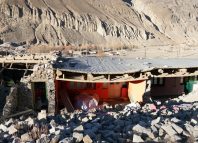




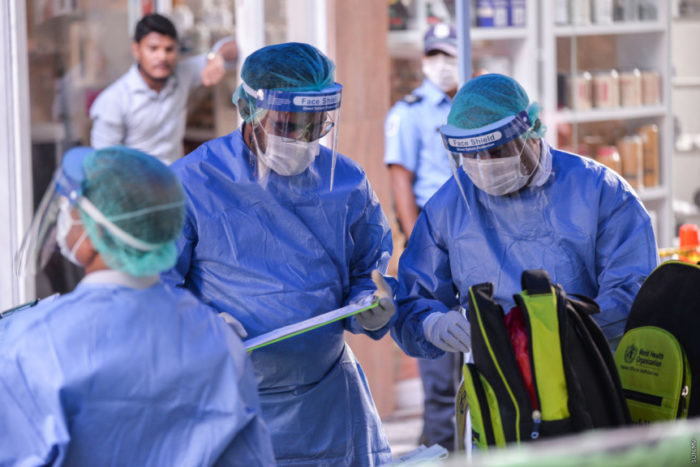
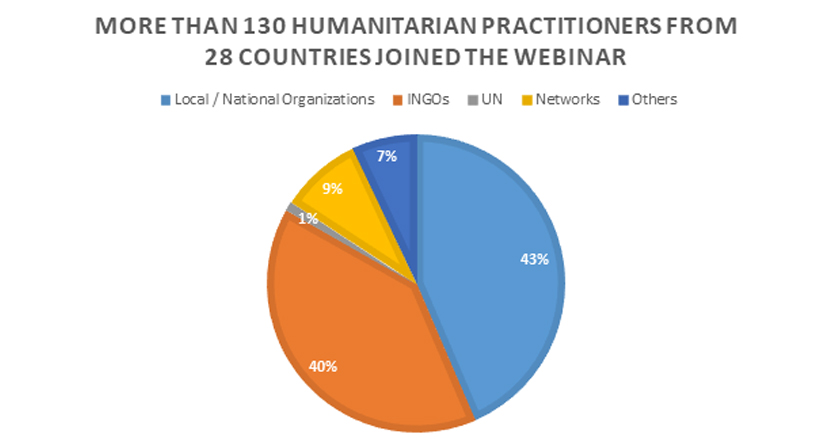
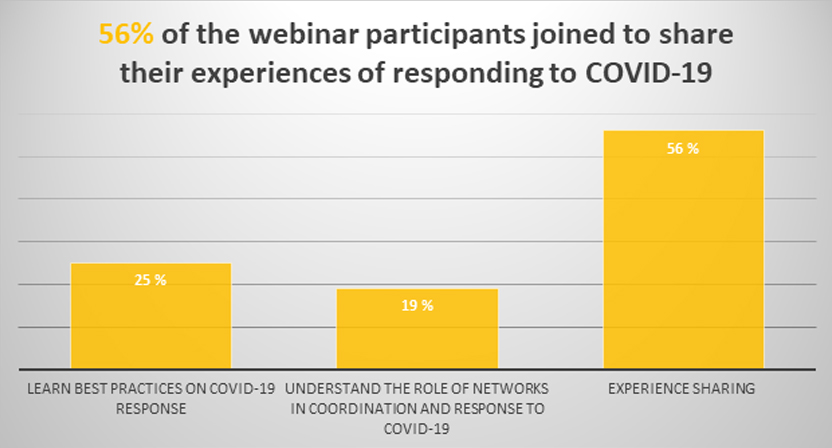


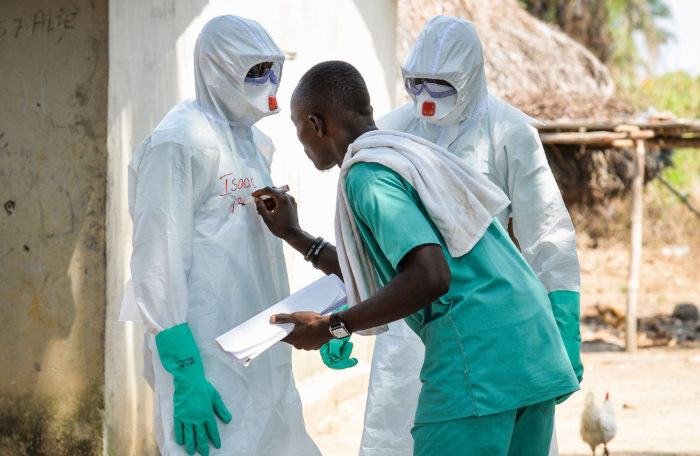
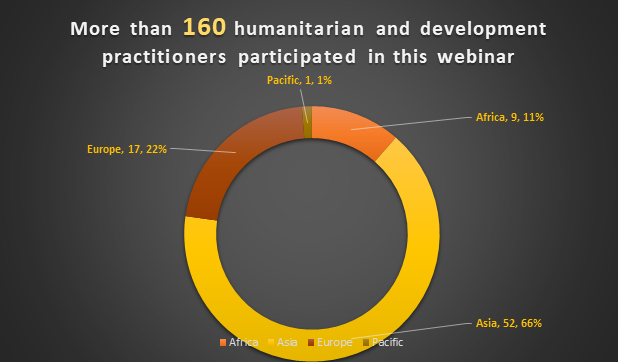
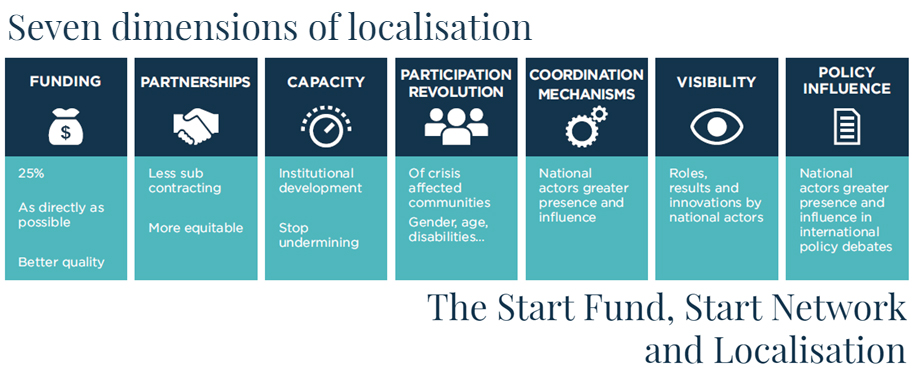
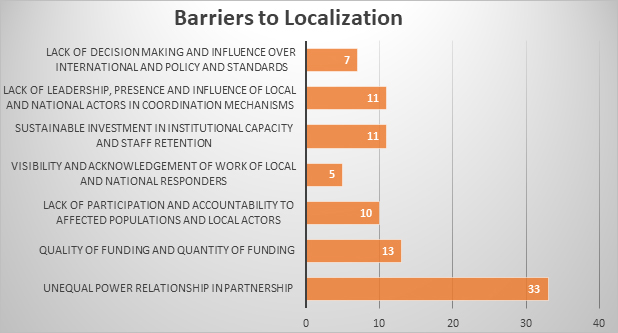

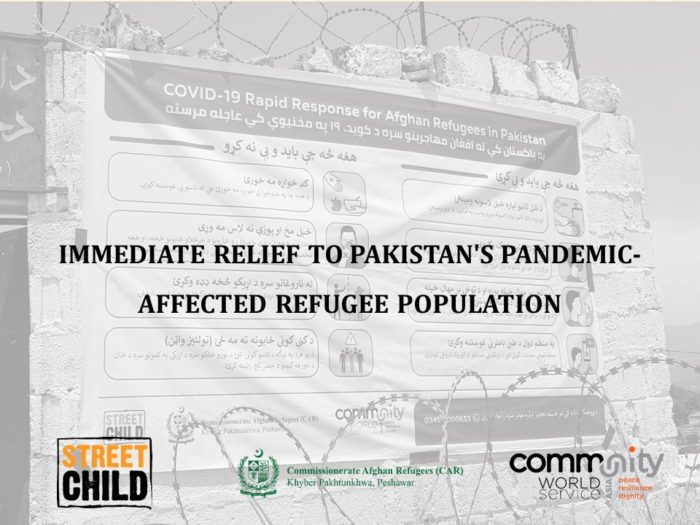

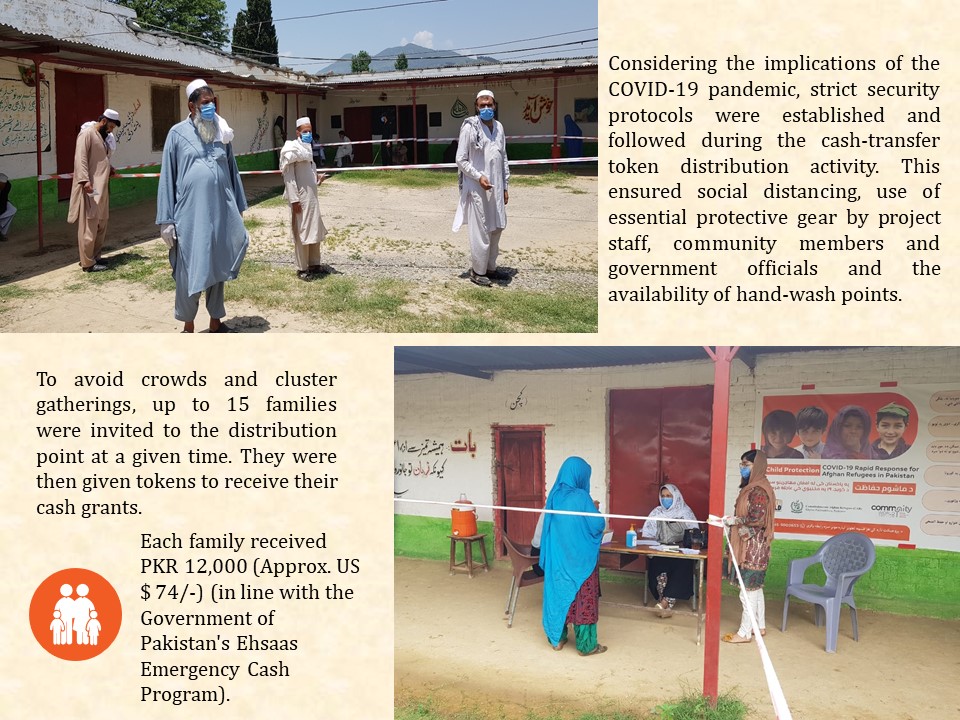
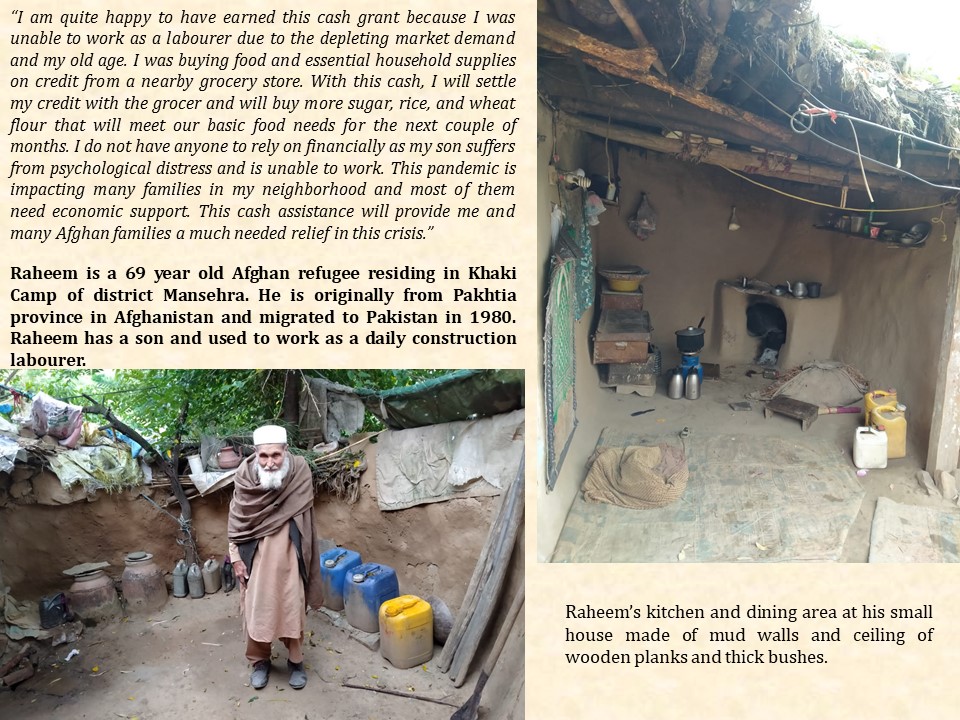
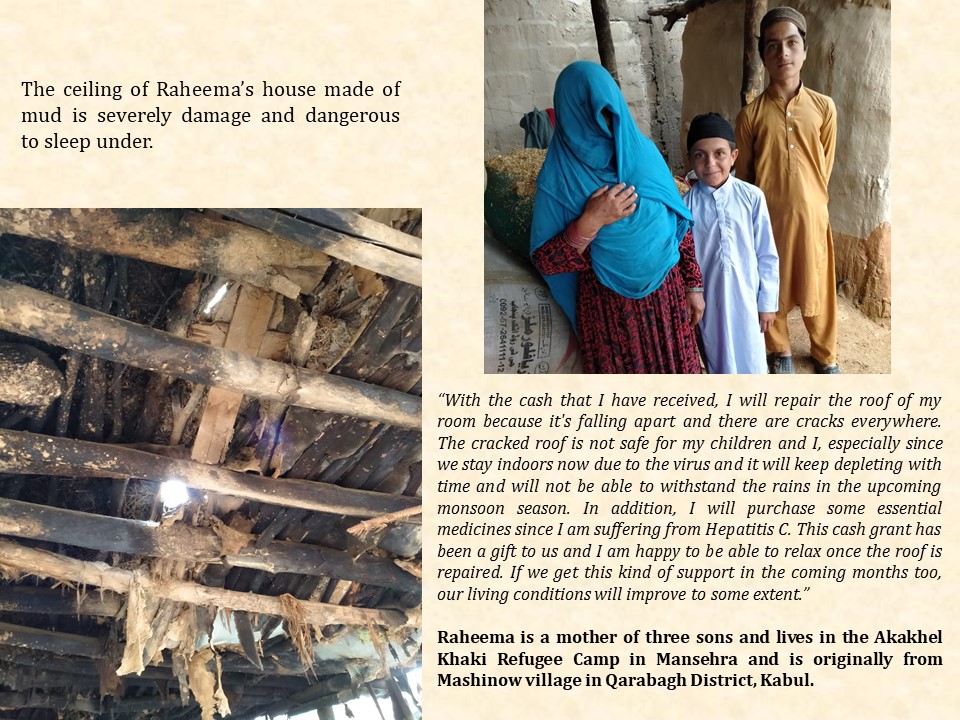

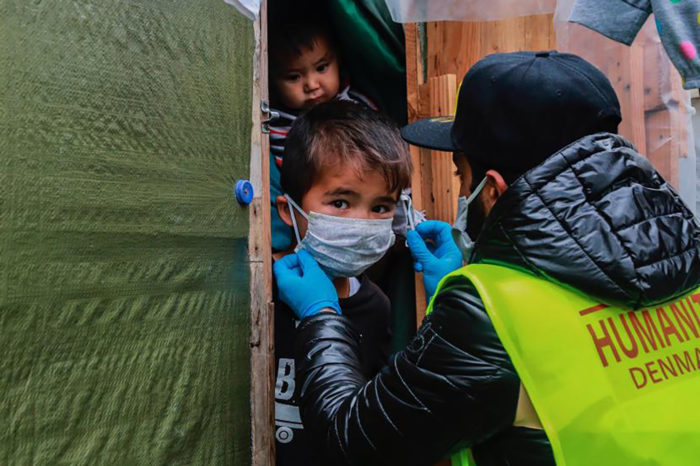
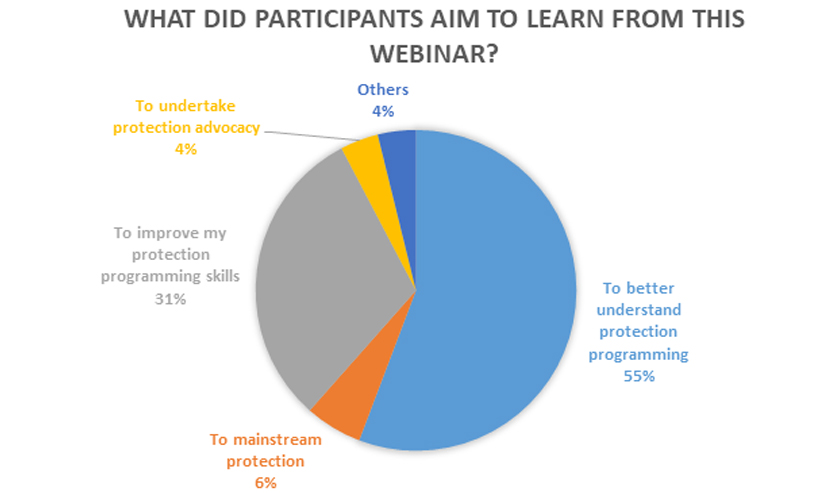
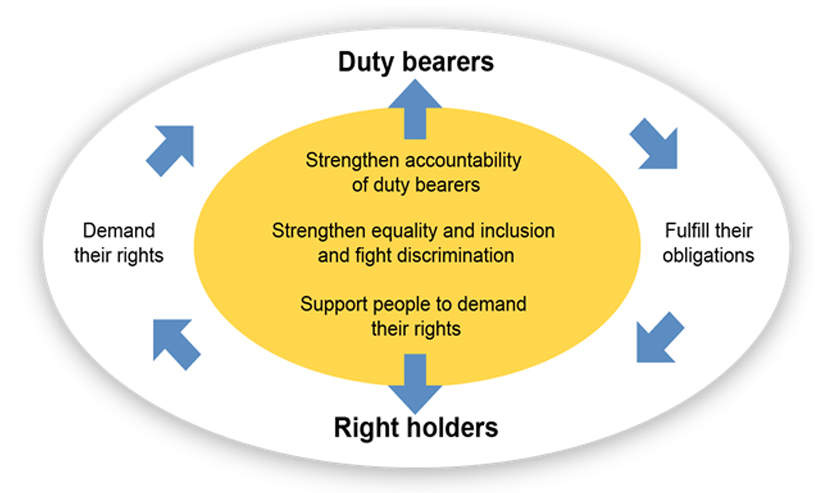
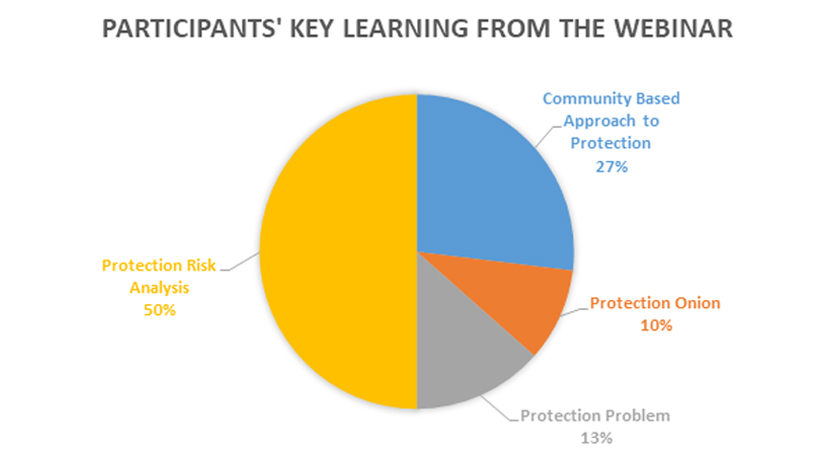
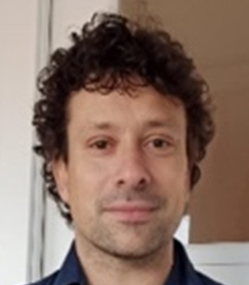 José Jódar is the Senior Technical Officer at CaLP and joined them in July 2019 after more than 12 years of work experience in multi-sectoral emergencies, livelihoods/food security and Cash & Vouchers Assistance programs with different organizations (mainly Spanish Agency for International Development Cooperation AECID, Spanish Red Cross/International Red Cross and Red Crescent Movement and Action Against Hunger) and in several contexts: Latin America, Sub-Saharan Africa and, lately, MENA region. José holds a PhD in International Cooperation and Development Studies (University of Murcia, Spain) and a Master’s degree in Africa Studies (major in African Politics) at School of Oriental and African Studies (SOAS, London). He has a wide range of experience in CVA design and implementation, technical advisory, capacity building and both technical and institutional coordination.
José Jódar is the Senior Technical Officer at CaLP and joined them in July 2019 after more than 12 years of work experience in multi-sectoral emergencies, livelihoods/food security and Cash & Vouchers Assistance programs with different organizations (mainly Spanish Agency for International Development Cooperation AECID, Spanish Red Cross/International Red Cross and Red Crescent Movement and Action Against Hunger) and in several contexts: Latin America, Sub-Saharan Africa and, lately, MENA region. José holds a PhD in International Cooperation and Development Studies (University of Murcia, Spain) and a Master’s degree in Africa Studies (major in African Politics) at School of Oriental and African Studies (SOAS, London). He has a wide range of experience in CVA design and implementation, technical advisory, capacity building and both technical and institutional coordination. Regina “Nanette” Salvador-Antequisa is the founding Executive Director of the Ecosystems Work for Essential Benefits, Inc. (ECOWEB) in the Philippines and convenor of the Community Led Emergency Action Response Network (CLEARNet) in the Philippines that actively promotes survivor and community-led response (sclr) to crisis approach – a humanitarian-development-peace nexus advocacy in action. She has been involved with peace and development work for over 25 years and is engaged in local and national policy advocacy on the issues of disaster, poverty, conflict, environment and governance. Regina is currently the sectoral representative of the Victims of Disaster and Calamities sector to the government’s National Anti-Poverty Commission. She is actively involved in international advocacy on localization of humanitarian aid through her engagement with the global Alliance for Empowering Partnerships (A4EP), Charter4Change, Local to Global Protection and participation in the World Humanitarian Action Forum.
Regina “Nanette” Salvador-Antequisa is the founding Executive Director of the Ecosystems Work for Essential Benefits, Inc. (ECOWEB) in the Philippines and convenor of the Community Led Emergency Action Response Network (CLEARNet) in the Philippines that actively promotes survivor and community-led response (sclr) to crisis approach – a humanitarian-development-peace nexus advocacy in action. She has been involved with peace and development work for over 25 years and is engaged in local and national policy advocacy on the issues of disaster, poverty, conflict, environment and governance. Regina is currently the sectoral representative of the Victims of Disaster and Calamities sector to the government’s National Anti-Poverty Commission. She is actively involved in international advocacy on localization of humanitarian aid through her engagement with the global Alliance for Empowering Partnerships (A4EP), Charter4Change, Local to Global Protection and participation in the World Humanitarian Action Forum.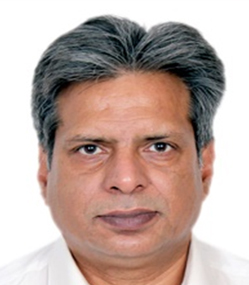 Sudhanshu S. Singh is a humanitarian and development professional with over 32 years of global experience in the sector. Sudhanshu is founder and CEO of Humanitarian Aid International (HAI) which aims to become the first Indian organisation, working globally with the Indian identity on poverty alleviation and disaster management. HAI is also currently hosting the international secretariat of Charter4Change.
Sudhanshu S. Singh is a humanitarian and development professional with over 32 years of global experience in the sector. Sudhanshu is founder and CEO of Humanitarian Aid International (HAI) which aims to become the first Indian organisation, working globally with the Indian identity on poverty alleviation and disaster management. HAI is also currently hosting the international secretariat of Charter4Change.
 MS. Qingrui Huang Qingrui is Acting Regional Representative for Asia and the Pacific at ICVA, a global network of NGOs whose mission is to make humanitarian action more principled and effective by working collectively and independently to influence policy and practice. She has over 15 years’ experience in technical advisory and program management with both UN agencies and NGOs in the areas of humanitarian and development in Asia, particularly in China, Myanmar and Thailand. In her current role, Qingrui closely works with ICVA members, NGOs and NGO networks, and humanitarian partners such as UN agencies and donors to ensure the humanitarian actions in Asia and the Pacific are more coordinated, accountable and inclusive.
MS. Qingrui Huang Qingrui is Acting Regional Representative for Asia and the Pacific at ICVA, a global network of NGOs whose mission is to make humanitarian action more principled and effective by working collectively and independently to influence policy and practice. She has over 15 years’ experience in technical advisory and program management with both UN agencies and NGOs in the areas of humanitarian and development in Asia, particularly in China, Myanmar and Thailand. In her current role, Qingrui closely works with ICVA members, NGOs and NGO networks, and humanitarian partners such as UN agencies and donors to ensure the humanitarian actions in Asia and the Pacific are more coordinated, accountable and inclusive.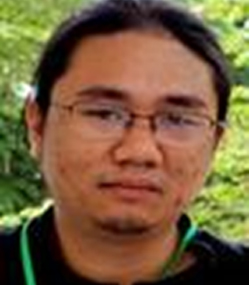 Mr. Hafiz AMIRROL Hafiz is the network coordinator for Asia Disaster Reduction and Response Network (ADRNN), a network of 52 civil society organizations across Asia that focuses on disaster risk reduction, and disaster response and preparedness. Hafiz is also Head of Strategic Planning and Building Resilient Communities at MERCY Malaysia. Hafiz is an urban designer and also a lecturer/researcher in the field of architecture, urbanism and city planning.
Mr. Hafiz AMIRROL Hafiz is the network coordinator for Asia Disaster Reduction and Response Network (ADRNN), a network of 52 civil society organizations across Asia that focuses on disaster risk reduction, and disaster response and preparedness. Hafiz is also Head of Strategic Planning and Building Resilient Communities at MERCY Malaysia. Hafiz is an urban designer and also a lecturer/researcher in the field of architecture, urbanism and city planning.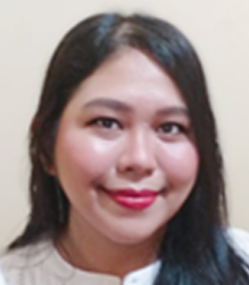 Ms. Dear NB Sinandang Dear is Communication and Partnership Manager of Humanitarian Forum Indonesia, a forum of faith-based organizations in Indonesia that was established in 2008. She has over 10 years’ experience in project management, capacity building programs, network management, and coordination and partnership with humanitarian key actors in the areas of humanitarian assistance and disaster management in Indonesia. In her current role, Dear closely works with HFI members, and humanitarian partners such as UN agencies, Red Cross, NGOs/INGOs, private sector, academia, donors, and regional to global networks.
Ms. Dear NB Sinandang Dear is Communication and Partnership Manager of Humanitarian Forum Indonesia, a forum of faith-based organizations in Indonesia that was established in 2008. She has over 10 years’ experience in project management, capacity building programs, network management, and coordination and partnership with humanitarian key actors in the areas of humanitarian assistance and disaster management in Indonesia. In her current role, Dear closely works with HFI members, and humanitarian partners such as UN agencies, Red Cross, NGOs/INGOs, private sector, academia, donors, and regional to global networks.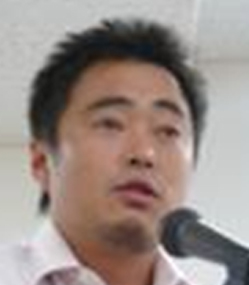 Mr. Takeshi Komino – Secretary General, Asian Disaster Reduction and Response Network (ADRRN) Takeshi currently serves as General Secretary of CWS Japan and a member of Executive Committee of Asian Disaster Reduction and Response Network (ADRRN) as Secretary General. He also serves as Co-chairperson of Japan Platform, and joint secretariat of Japan CSO Coalition for DRR (JCC-DRR), as well as the chairperson of Japan Quality and Accountability Network (JQAN).
Mr. Takeshi Komino – Secretary General, Asian Disaster Reduction and Response Network (ADRRN) Takeshi currently serves as General Secretary of CWS Japan and a member of Executive Committee of Asian Disaster Reduction and Response Network (ADRRN) as Secretary General. He also serves as Co-chairperson of Japan Platform, and joint secretariat of Japan CSO Coalition for DRR (JCC-DRR), as well as the chairperson of Japan Quality and Accountability Network (JQAN).
